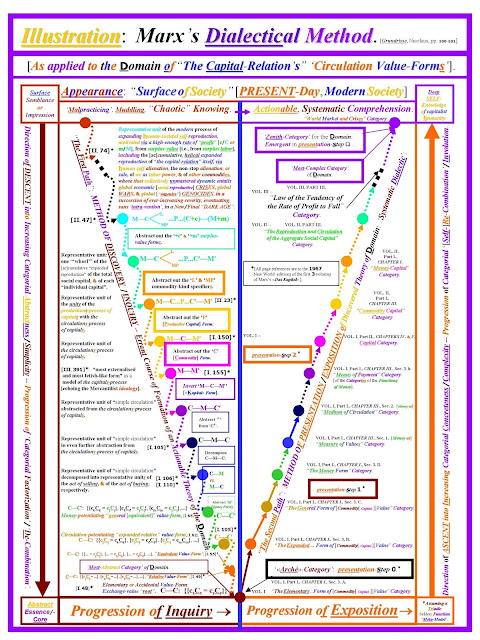
Part 01: The Seldon Dialogues, Excerpts -- The Predictive Power of Dialectics.
Dear Reader,
FYI --
It is my pleasure, and my
honor, as an Officer of the Foundation
Encyclopedia
Dialectica [F.E.D.]
Office of Public Liaison, to share with you, from time to time, as they are approved
for public release by the F.E.D. General Council, key
excerpts from the internal writings and sayings of our
co-founder, Karl Seldon.
The first such
release in this new
series is pasted in below. [Some E.D. standard edits have been applied, in the version
presented below, to the direct transcript of our co-founder’s discourse].
ENJOY!
Regards,
Miguel Detonacciones,
Member, Foundation Encyclopedia
Dialectica [F.E.D.],
Officer, F.E.D.
Office of Public Liaison.
“... As we have discussed previously, ‘‘‘«monad»’’’ is the [ancient]
term that we
use as the generic name for the units, i.e., the “individuals”, that constitute the physically-spatially
local populations,
or concrete
‘‘‘«arithmoi»’’’
[i.e., the “numbers” [of units[, each
of a given, single kind]] of each specific kind of being, or of ‘‘‘ontology’’’ -- the concrete content referred to, and represented by, an ‘‘‘ontological category’’’. ...”
“Suppose that, indeed,
‘symbolic categorial combinatorics’ mirrors ‘monadic combinatorics’, and that actual ‘monadic
combinatorics’ is the dialectical,
or «aufheben»,
process by
which our «kosmos» generates new actual ontology, actual ontological innovations; ontological change; the irruption of unprecedented
new kinds of being -- i.e., ‘‘‘qualitative change’’’ -- as an outcome of sufficient quantitative change, in the form of sufficient growth in the numerosity and [physical-spatial] density of local monadic populations.”
“If so, then ‘symbolic,
categorial, dialectical
combinatorics’ should be expected to have predictive
power.”
“It should, because, in that
case, ‘symbolic, categorial, dialectical combinatorics’ ought to be able to symbolically
‘pre-construct’
descriptions
of the ontological
content of future epochs of history -- of epochs of future history -- resulting from the [further re-]combinations and ‘self-combinations’
of the ontological
categories /«monads» that are extant in the present epoch of [natural-]history.”
“As well, ‘symbolical
categorial combinatorics’ ought to be able to symbolically ‘‘‘re-construct’’’
the ontological
categories /«monads» content present in past epochs of [natural-]history, via categorial/monadic
‘‘‘decomposition’’’/‘decombination’/‘‘‘deconstruction’’’/‘‘‘factorization’’’
of ontological
categories /«monads» extant in the present epoch of history, i.e., of the «monads» presently present. ...”




